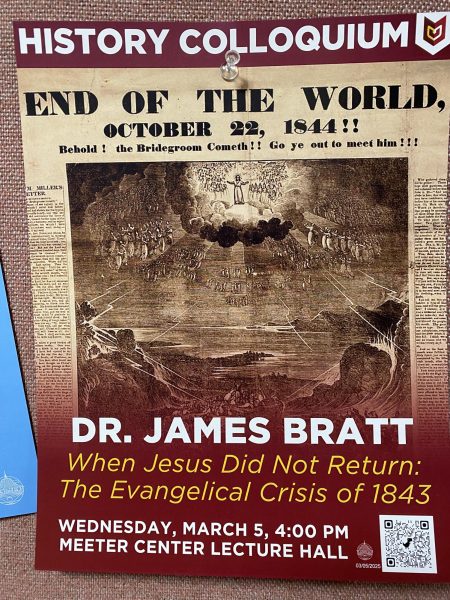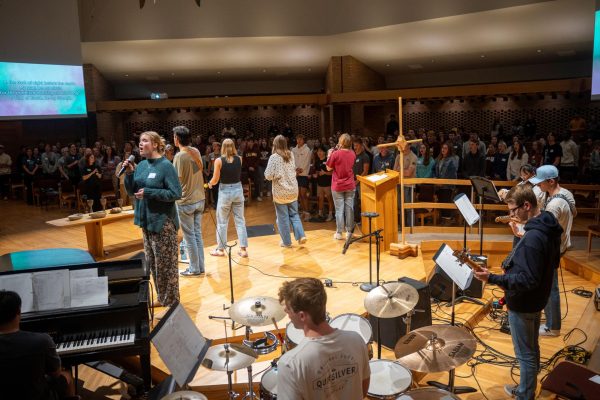New poll from the Pew Research Center shows a decrease in religiosity
A recently released poll by the Pew Research Center has indicated that trends of religiosity are on the decline in the United States. As highlighted by Tom Gjetlen from NPR, Americans who were asked if they were “absolutely certain” of God’s existence has dropped from 71 percent in 2007 to 63 percent.
Additionally, the proportion of adults that considered themselves to be “religiously affiliated” has decreased from 83 percent to 77 percent. The extensive report also covered the statistics on responses to questions regarding the frequency of religious practices and customs such as church attendance, prayer and speaking in tongues. While the results of the study may seem only to be minor statistical deviations since 2007, authors of the report think there is a possibility that these numbers may reflect lasting changes in American religion.The changes in percentages may be slight, but the brief period of time in which these statistical variances have occurred is unusual.
With a survey sample of 35,000, the drop in religiosity is particularly evident among millennials, who are categorized as young Americans born between 1981 and 1996. According to the report it is estimated that only a quarter of millennials attend church services on a weekly basis, and about 4 in 10 millennials reported religion to be an important part of their lives. Compared with older adults born between 1928 and 1946, known as the “Silent Generation,” about half of these adults attend church weekly and two-thirds of them regard religion to be important in their lives.
According to the report, “as older cohorts of adults (comprised mainly of self-identified Christians) pass away, they are being replaced by a new cohort of young adults who display far lower levels of attachment to organized religion than their parents’ and grandparents’ generations did when they were the same age.”
This poll is coming on the heels of an earlier report from the Pew in May that shows millennials are leaving the Christian church in large numbers. Nearly every major Christian branch in the country has lost a significant amount of church members since 2007. And researchers have mainly attributed this number to the millennials that are leaving.
Greg Smith, the associate director of religion research as well as the lead researcher on this new study, said, “We’ve known that the religiously unaffiliated has been growing for decades, but the pace at which they’ve continued to grow is really astounding.”
However the report did show that 77 percent of Americans in the poll continued to identify with some form of religious faith, and the survey reflects that the number of these religious Americans are just as devoted to religious practice through things such as church and prayer. Along with this, a total of 89 percent of adults reported that they believe in a god. While this statistic includes many from major faiths such as Protestant denominations, Catholics, Jews, Muslims, Buddhists, the study also reported that a significant proportion of the 89 percent are Americans categorized as the “nones.”
There has also been an overall rise in the religious category known as the “nones,” who are those that identify themselves to be religiously unaffiliated. These include atheists, but also encapsulate a wide variety of other people who may distinguish their religion to be “nothing in particular.” As reported by Harriet Sherwood of The Guardian, this religious category has grown from 16 percent in 2007, to an estimated 23 percent from this recent poll.
This survey also highlighted religious divides among the political parties. Twenty-eight percent of Democrats registered as irreligious compared to the 14 percent of the Republicans. Major presidential candidates such as Ben Carson, Donald Trump and Bernie Sanders have all recently sounded off on the issue of religion. And with campaigns beginning to pick up steam for the 2016 elections, the discussion of religion is a particularly intriguing one in the political sphere.






